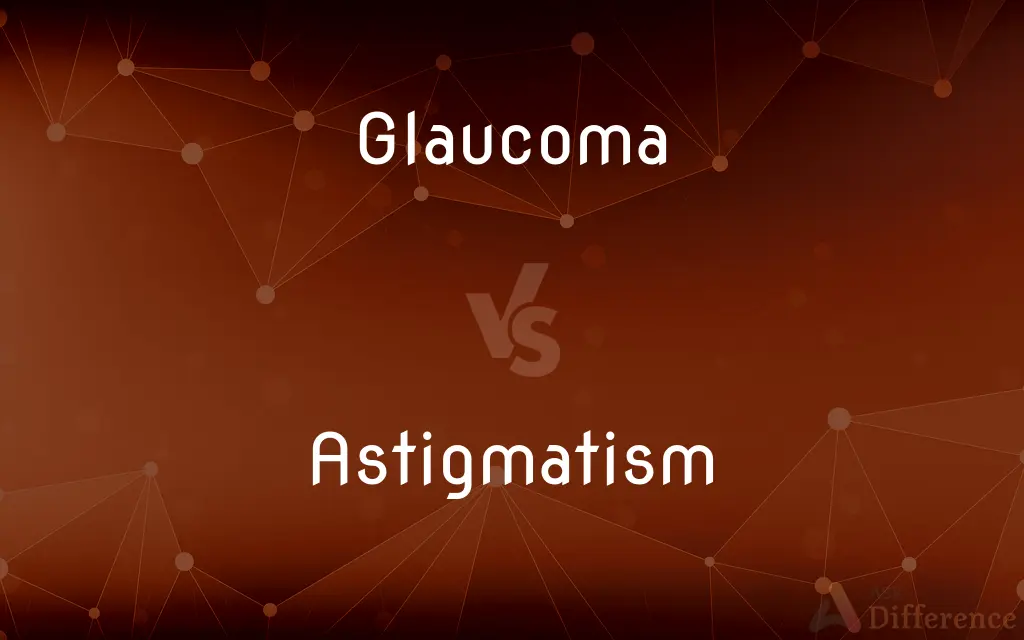Glaucoma vs. Astigmatism — What's the Difference?

Difference Between Glaucoma and Astigmatism
ADVERTISEMENT
Compare with Definitions
Glaucoma
Glaucoma is a group of eye diseases which result in damage to the optic nerve (or retina) and cause vision loss. The most common type is open-angle (wide angle, chronic simple) glaucoma, in which the drainage angle for fluid within the eye remains open, with less common types including closed-angle (narrow angle, acute congestive) glaucoma and normal-tension glaucoma.
Astigmatism
Astigmatism is a type of refractive error in which the eye does not focus light evenly on the retina, due to a variation in the optical power of the eye for light coming from different directions. This results in distorted or blurred vision at any distance.
Glaucoma
A condition of increased pressure within the eyeball, causing gradual loss of sight.
Astigmatism
A visual defect in which the unequal curvature of one or more refractive surfaces of the eye, usually the cornea, prevents light rays from focusing clearly at one point on the retina, resulting in blurred vision.
Glaucoma
Any of a group of eye diseases characterized by abnormally high intraocular fluid pressure, damage to the optic disk, and gradual loss of vision.
ADVERTISEMENT
Astigmatism
(optics) A defect of a lens such that light rays coming from a point do not meet at a focal point so that the image is blurred.
Glaucoma
(pathology) An eye disease or disorder that is defined as a characteristic optic neuropathy, or disease of the optic nerve, possibly, if untreated, leading to damage of the optic disc of the eye and resultant visual field loss due to lack of communication between the retina and the brain, which can lead to blindness.
Astigmatism
(pathology) A disorder of the vision, usually due to a misshapen cornea, such that light does not focus correctly on the retina causing a blurred image.
Glaucoma
Dimness or abolition of sight, with a diminution of transparency, a bluish or greenish tinge of the refracting media of the eye, and a hard inelastic condition of the eyeball, with marked increase of tension within the eyeball.
Astigmatism
A defect of the eye or of a lens, in consequence of which the rays derived from one point are not brought to a single focal point, thus causing imperfect images or indistinctness of vision.
Glaucoma
Increased pressure in the eyeball due to obstruction of the outflow of aqueous humor; damages the optic disc and impairs vision (sometimes progressing to blindness)
Astigmatism
(ophthalmology) impaired eyesight resulting usually from irregular conformation of the cornea
Astigmatism
(optics) defect in an optical system in which light rays from a single point fail to converge in a single focal point
Share Your Discovery

Previous Comparison
Hydraulic vs. Hydro
Next Comparison
Crew vs. Group














































